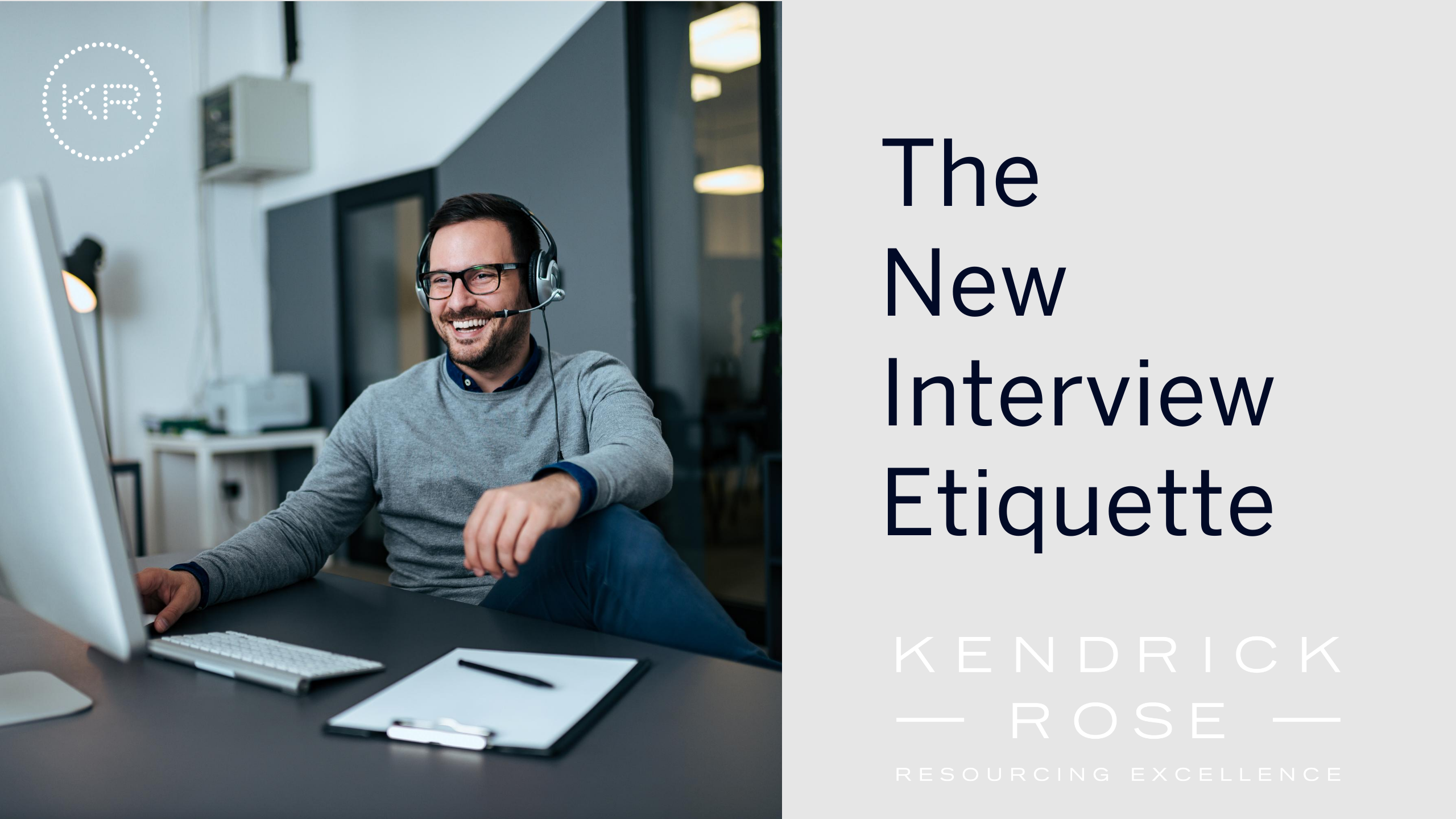The new job interview etiquette: Interviews and new jobs in the world of Covid-19
Posted on 30/07/20
Before Covid-19, the idea of hiring a person you had never met was a bit extreme for most of us. The subtlety of body language, the ability to sit back and observe someone as they talk, and the myriad of little things you pick up when you’re in the same room would surely all be lost?
However, after several months living increasingly important areas of our lives online, perspectives have changed. Face-to-face interviews are no longer the most significant part of the recruitment process, with telephone and online interviews getting candidates over the line in more situations.
While virtual interviews were a necessity during the worst days of the Coronavirus Pandemic, they are becoming the norm for a growing number of roles, even when face-to-face is possible.
Figures from Gartner show 86% of businesses have been conducting virtual interviews during the pandemic while research by Cielo, a recruitment process outsourcing provider, found 65% of companies were making offers without meeting a candidate in person, with 82% of hiring managers saying they will continue interviewing candidates by video.
In Jersey, face-to-face interviews have resumed, but most recent hires through Kendrick Rose have been achieved primarily through interviews using Zoom or Teams.
Shelley Kendrick, Managing Director, Kendrick Rose, said: “Our office has been fully staffed since the start of July, however, a lot of hiring managers are still working from home, which makes it more straightforward for them to conduct interviews virtually.
“After over three months working online, most of us are a lot more familiar with the tools and procedures for carrying out virtual interviews, even for director level appointments. We don’t expect face-to-face interviews to die out. However, even without the threat of Coronavirus, we’d expect virtual interviews to remain a significant part of the process.”
Using virtual interviews, especially in the early stages or for pre-screening, helps speed up the process, making it easier for businesses to speak to candidates sooner than might otherwise happen when you’re trying to synch busy diaries.
Once someone has been offered a job, businesses are staying online through the on-boarding process. Gartner found 85% of hiring managers are using new tech to on-board new employees, with e-learning modules and virtual classrooms helping recruits settle into their roles.
With remote working becoming commonplace for more businesses after Covid-19, some new members of staff will never know office life as it was.
A growing number of major global organisations are shifting towards models that incorporate staff working at home regularly or indeed, even permanently. Twitter announced it will let staff ‘Work from Home Forever’, while Facebook and Shopify plan to allow employees to work remotely. In the Netherlands ABN Amro recently revealed staff only have to work two days a week in the office, and Siemens has pledged that staff can work two or three days a week from anywhere.
In Jersey companies are adapting too, with some firms moving from a hot desk approach to staff having to book a desk first if they wish to come into the office.
Shelley said: “The world has changed, and businesses have moved on. With more people working from home, starting a new job is a different proposition. If you start your new role remotely it can be harder to get to know people in the company or build up relationships with them. Even if you are in the office, many of your new colleagues won’t be, so you could still be relying on online introductions. This makes the communications you have even more significant.”

Interview etiquette post Covid-19: Top tips for virtual and face-to-face interviews for a new job
Virtual Interviews
- You might not need to travel for an interview, however, if you live in a flatshare, finding a quiet, private, and professional space to conduct a video call can be even more daunting. Just as you might scope out a transport plan before an interview, map out your virtual interview – where to sit, how to keep people out of the room, etc.
- Lounge wear may have ruled during lockdown, however, looking the part makes you feel the part, so dress as you would for a normal day in the office. The half-half approach – smart top, casual bottoms looks lazy, and makes it hard to get up mid-interview if you need to open a window etc.
- Before the interview, test your kit, pour a glass of water, and grab a notebook and pen. Put your phone and other electronic devices on silent and take a few moments to relax before your call. Smile.
Face-to-face interviews
- If you are invited into an office for an interview, it’s likely the building will be quieter than usual. Doors to the outside may be locked and there might not be anyone on at reception so be sure to have a contact number for the person you are meeting.
- You may be required to wear a mask in communal areas, and even in the interview room. Sanitize your hands on entering and leaving a building and maintain a safe distance from everyone. Don’t try to shake hands with the interviewer.
- Be prepared for a risk assessment before the interview confirming that you don’t have any symptoms of Covid-19 and haven’t travelled from a high-risk area.

"We don’t expect face-to-face interviews to die out. However, even without the threat of Coronavirus, we’d expect virtual interviews to remain a significant part of the process.” - Shelley Kendrick
